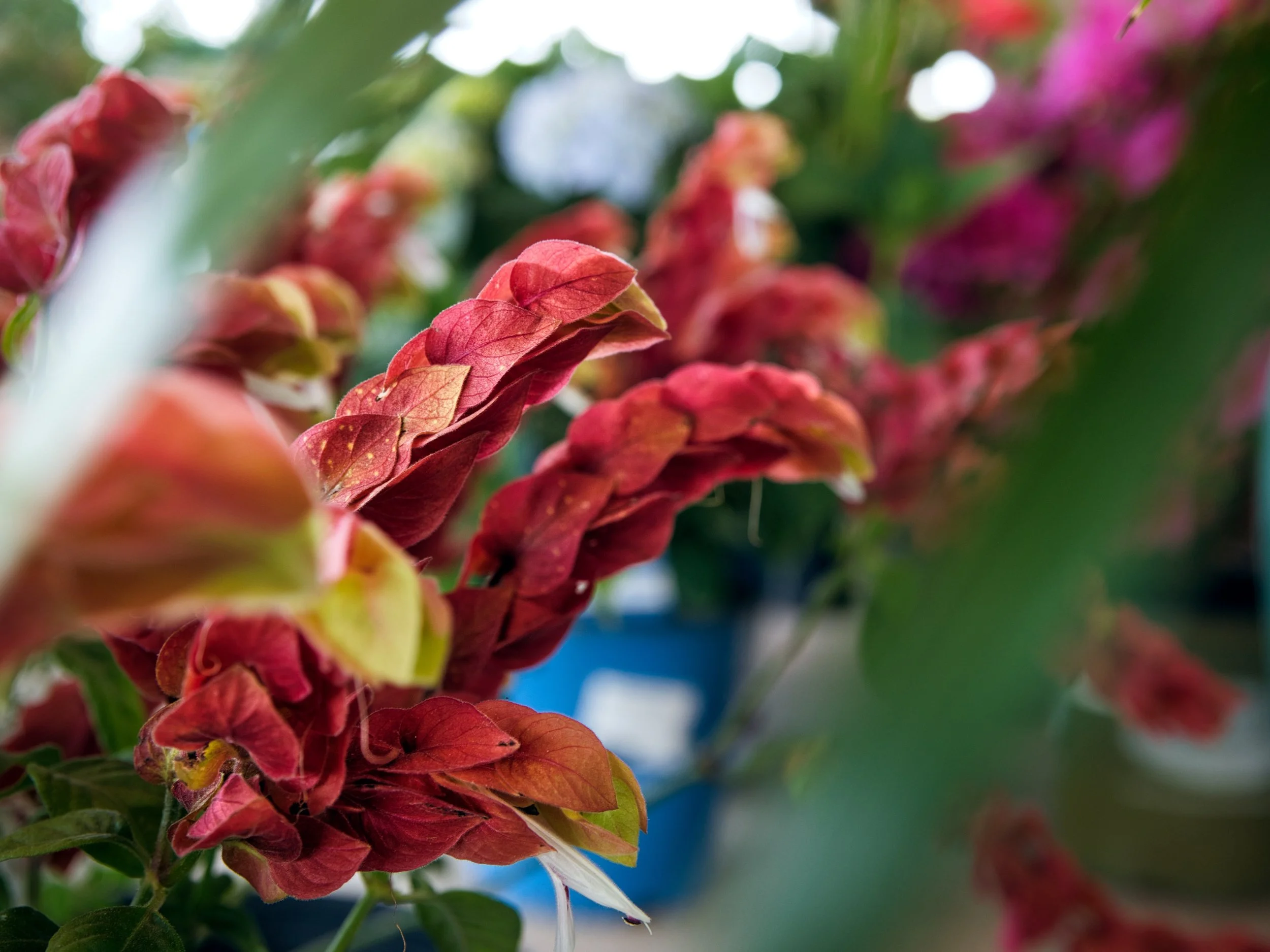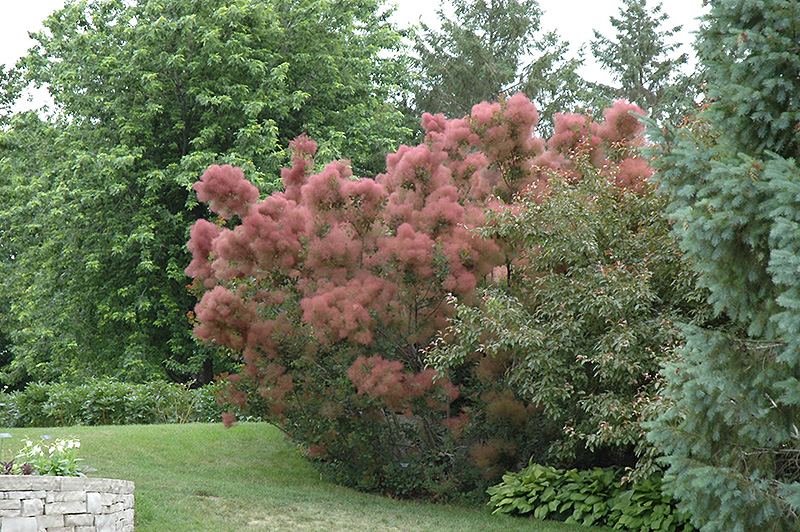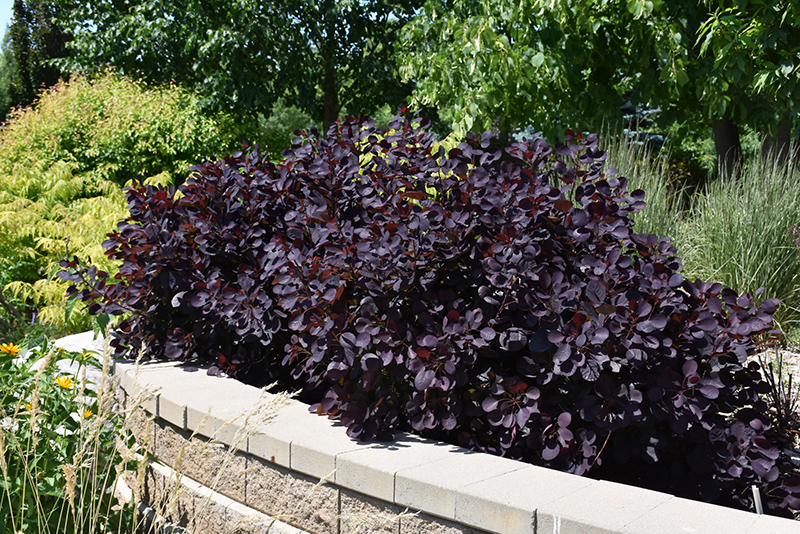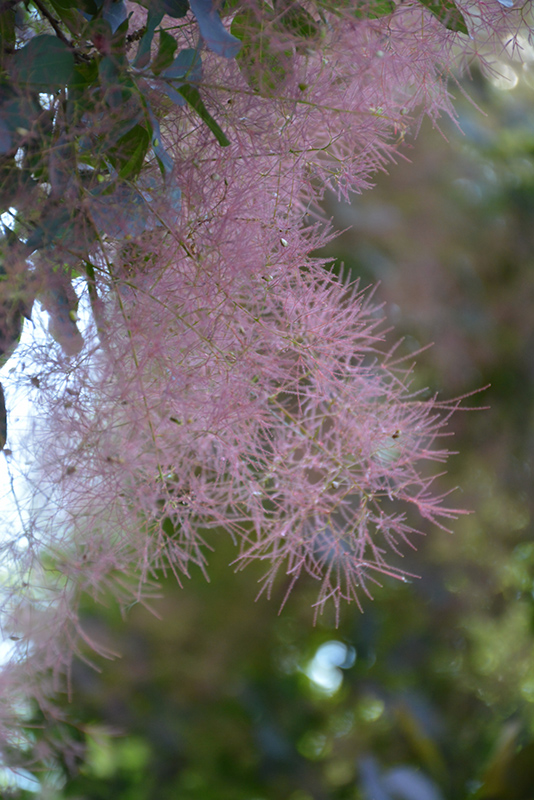Royal Purple Smokebush
Cotinus coggygria 'Royal Purple'
Height: 15 feet
Spread: 12 feet
Sunlight:
![]()
Hardiness Zone: 5a
Other Names: Smoketree
Description:
One of the most popular color accent plants for general garden use featuring maroon foliage all summer long, turning to red in fall; flowers and reddish inflorescence produce a smoky appearance throughout summer, hence the name; best pruning Nov-Feb
Ornamental Features
Royal Purple Smokebush features airy panicles of yellow flowers with fuchsia stalks at the ends of the branches from early to late summer. It has attractive deep purple deciduous foliage. The round leaves are highly ornamental and turn an outstanding brick red in the fall.
Landscape Attributes
Royal Purple Smokebush is a multi-stemmed deciduous shrub with an upright spreading habit of growth. Its average texture blends into the landscape, but can be balanced by one or two finer or coarser trees or shrubs for an effective composition.
This shrub will require occasional maintenance and upkeep, and is best pruned in late winter once the threat of extreme cold has passed. Deer don't particularly care for this plant and will usually leave it alone in favor of tastier treats. It has no significant negative characteristics.
Royal Purple Smokebush is recommended for the following landscape applications;
- Accent
- Mass Planting
- Hedges/Screening
- General Garden Use
Planting & Growing
Royal Purple Smokebush will grow to be about 15 feet tall at maturity, with a spread of 12 feet. It tends to be a little leggy, with a typical clearance of 1 foot from the ground, and is suitable for planting under power lines. It grows at a medium rate, and under ideal conditions can be expected to live for 40 years or more.
This shrub should only be grown in full sunlight. It is very adaptable to both dry and moist locations, and should do just fine under average home landscape conditions. It is not particular as to soil type or pH. It is highly tolerant of urban pollution and will even thrive in inner city environments, and will benefit from being planted in a relatively sheltered location. This is a selected variety of a species not originally from North America.




